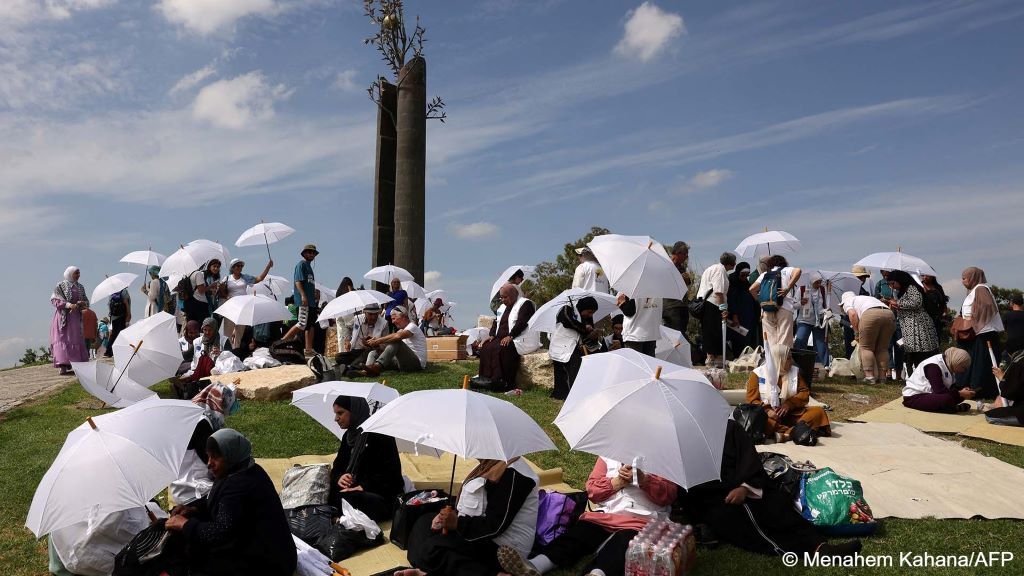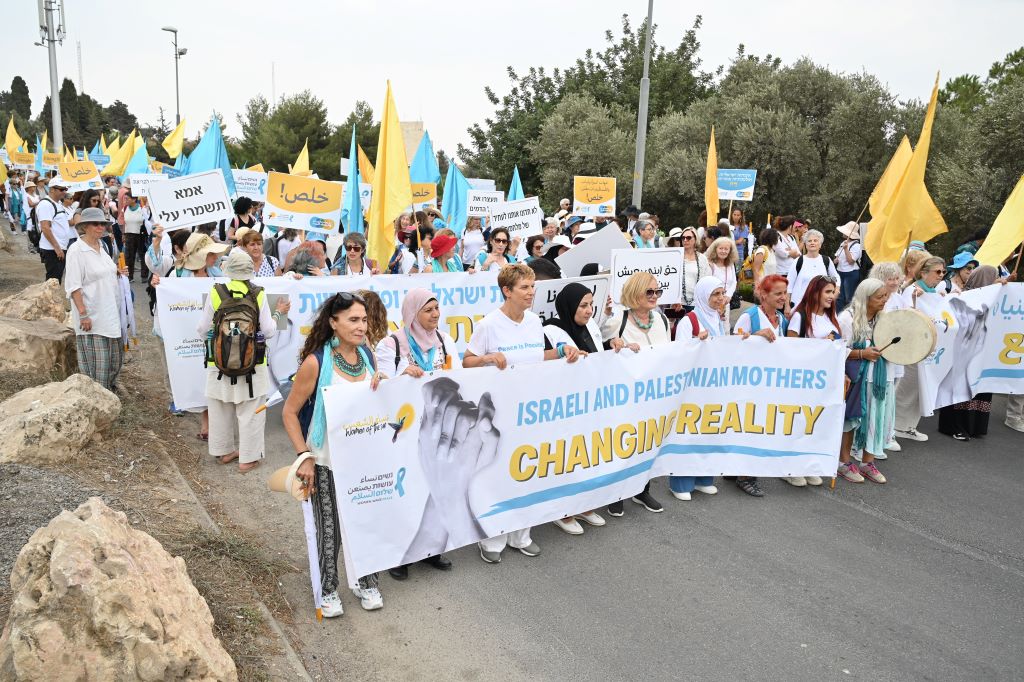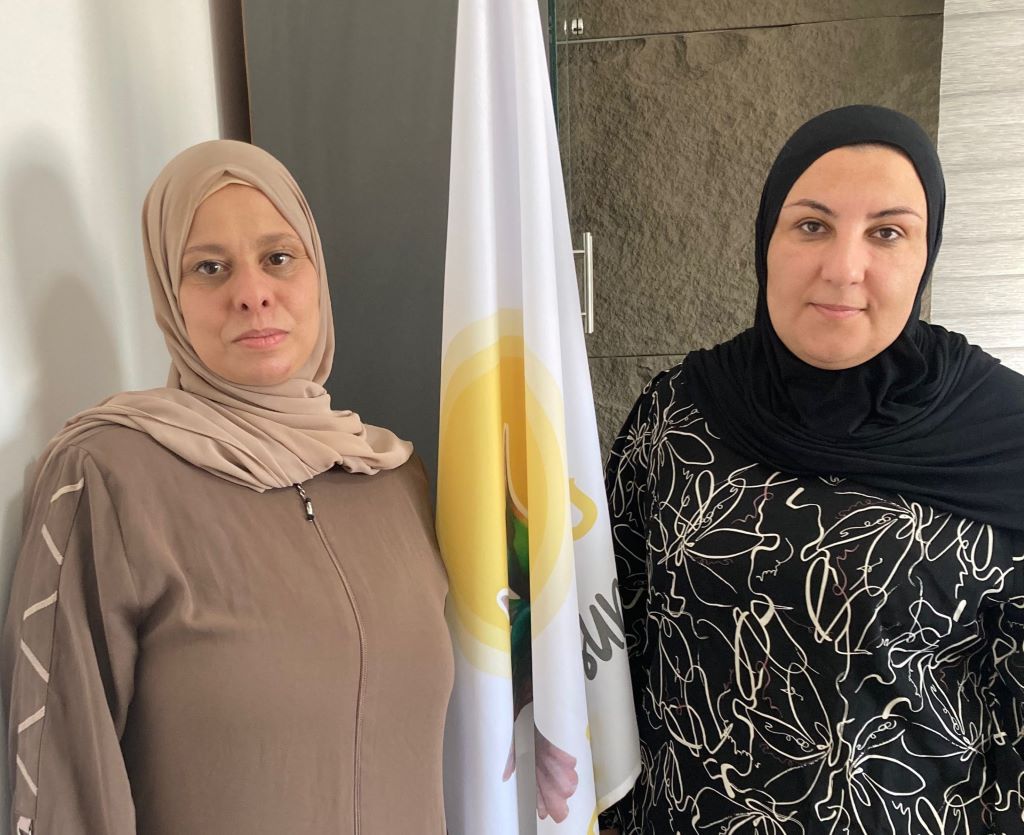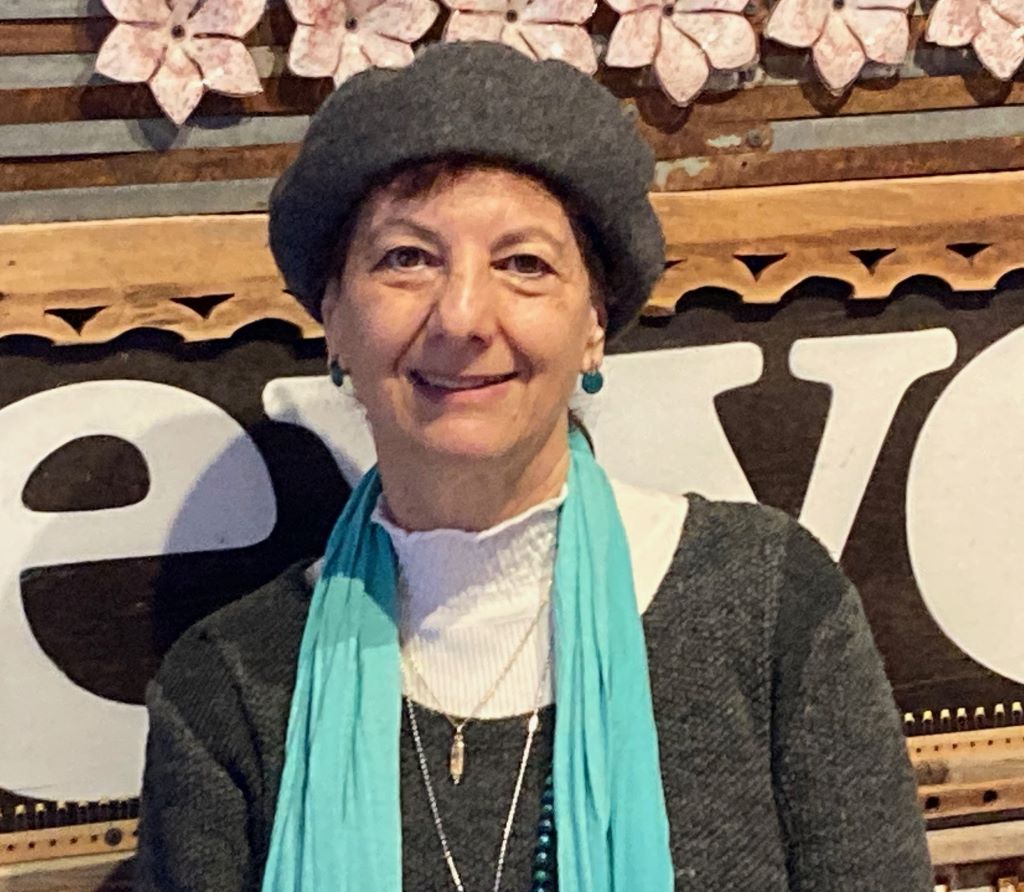Women for peace

When Peta Jones Pellach raves about what she describes as the "wonderful event", you can't help but feel you missed out on something. On 4 October 2023, well over a thousand women – both Israeli and Palestinian – gathered for a kind of feminist peace movement happening in Jerusalem and at the Dead Sea. All the photos of this memorable day show the turquoise blue scarves and flags of the Israeli movement Women Wage Peace (WWP) and the bright yellow scarves and flags of the Palestinian organisation Women of the Sun (WOS), for the most part in mixed groups full of beaming faces.
The event was organised to celebrate their partnership pact, known as "Mother's Call", which states: "We are united in the human desire for a future of peace, freedom, equality, rights, and security for our children and the next generations" – a plausible principle for solving the Middle East conflict. Many women supported it and felt strong. "We were so full of hope," says Peta Jones Pellach, a devout Jew and 70-year-old Women Wage Peace activist. "We felt as though peace was just around the corner."
It was an illusion that was brutally shattered three days later, on 7 October 2023, a day that will go down in the annals of the Middle East conflict as the Black Sabbath. Jones Pellach is a strict observer of the Jewish day of rest, so she only heard news of Hamas's brutal terror attack on southern Israel later. At the time, there were reports of 80 dead. "The first number I heard after the end of Shabbat," she says. "A terrible shock."

The legacy of Vivian Silver
At the time, the full extent of the massacres in the kibbutzim bordering Gaza and at a music festival taking place nearby, which left some 1,200 people dead, was still far from clear. Also, it still wasn't known how many people had been kidnapped from these places, both Israelis and others, and taken to Gaza. Among them, it was said, was Vivian Silver, a charismatic peace activist and founder member of Women Wage Peace.
Immediately, her supporters made a decision: we will stand by the hostages' families and maintain contact with our Palestinian counterparts, who adored Vivian. That very same evening, the members of Women Wage Peace and Women of the Sun made contact with each other.
At an interview at her workplace in central Jerusalem, Jones Pellach remembers how the women had tried to reassure themselves by saying "Vivian will certainly be giving them a piece of her mind in Gaza." But as time passed, their fears grew.
It was mid-November, five weeks after the Hamas attack, when they discovered that Vivian Silver would never return. Her body, charred beyond recognition, had been identified from DNA trace samples. The 74-year-old woman with Israeli and Canadian citizenship was among the 10 percent of the residents of Kibbutz Be'eri who did not survive the massacre.
Hundreds of Jewish and Arab Israelis attended her funeral to pay their last respects. Delivering a poignant farewell, her son Jonathan said what many were feeling: Vivian, he said, would have blamed these events on the fact that peace had not been made between Israelis and Palestinians.
Victims on both sides
Reem Alhajajreh, a modern Muslim woman who combines a headscarf with leggings, would have liked to attend the memorial, but as a West Bank Palestinian, she could only be there in spirit. "Vivian embodied a great humanity, she was like us," says the head of Women of the Sun.
The Palestinian territories have been subjected to even stricter controls since 7 October. Direct encounters between the two women's organisations are still impossible. Nevertheless, Jonathan's message to continue on Vivian's path was heard by Reem and gave her encouragement.
Just carry on. Easier said than done. In addition to Vivian Silver, two other Israeli members of Women Wage Peace were killed in the Hamas attack. In the devastating Gaza war, at least 32 members of Women of the Sun – if not more – have lost their lives. "We haven't the faintest idea where our 300 members in Gaza have ended up," says Reem Alhajajreh. "We only get sporadic Internet and mobile services to Gaza."
The 42-year-old runs the office of the Palestinian women's NGO as her main job, on the fourth floor of an old building on Bethlehem's main street. She is supported by Marwa Hamad, four years her junior. Their work is financed by project-related funding from Europe and the US, as well as private donations. The NGO's programme includes trauma workshops, first aid courses, environmental protection and female empowerment.
As long as the war continues, the group's primary goal of bringing about peace talks has been put on the back burner. Nevertheless, Women of the Sun still holds fast to this objective, even if some counter with "how can we still sit at the same table with the Israelis" in view of the scale of the suffering, death and destruction in Gaza. Reem and Marwa insist that many more still think "like us" that "peace is the only solution if our children are going to have a future in this country."
It was concern for her son, a teenager at the time, that motivated Reem Alhajajreh to take action. She is a qualified social worker and grew up in Dheisheh, the largest Palestinian refugee camp in Bethlehem. It's a place where kids grow up in cramped conditions and an atmosphere of violence. Some died in clashes with Israeli soldiers, including her son's friend, others were arrested. "My first thought was, we have to protect our children," says Alhajajreh. "It's what any mother would do."
So, three years ago, Alhajajreh and a group of like-minded women set up an initiative for peace education, called Women of the Sun, in allusion to a novel by Marwan Kanafani titled Men in the Sun. Today, the initiative has 3,000 members in Gaza, East Jerusalem and the West Bank.

Hatred and pain run deep
She believes that each and every one of these members can raise her voice within her family and neighbourhood. With a laugh, Alhajajreh confidently brushes aside the objections of some men to her work. "They just need to accept it," she says. Her goal is to have female leaders installed in political roles in 10 years' time.
Although she may sound confident, Alhajajreh isn't glossing over the hard facts. "When the war broke out, many Palestinians still admired Hamas for their actions," she says. Just as calls for revenge initially resonated with most Israelis and only a few voiced doubts over Benjamin Netanyahu's grandiose promise of "total victory over Hamas".
Gradually, a sense of disillusionment is spreading. But both the mutual hatred and the pain felt by both sides run deep, says Alhajajreh, "It'll be difficult to overcome both."
Peace – that sounds more utopian than ever. The Oslo peace process, still celebrated in the 1990s, has long been considered a failure. All attempts to breathe new life into it were in vain. Israel's settlement building in the West Bank, military raids, but also Palestinian attacks and attacks by militant Jewish settlers scotched any hopes of a peaceful co-existence even before the murderous events of 7 October.

Security won't be attained by military means
So, what's the alternative? "People see that violence only begets more violence," says Marwa Hamad, responsible for international contacts at the Women of the Sun office. "If the Gaza war doesn't make both sides see that, what else needs to happen?" she asks.
This is a thought shared by the group's Israeli partner NGO, Women Wage Peace. Founded ten years ago after the 2014 Gaza war, its membership has now risen to 44,000. Its strength comes not least from the fact that it welcomes all those interested in a peaceful solution.
Left, right, strictly devout or secular – engagement not exclusion is what Women Wage Peace is all about. It's also a subject close to the heart of Peta Jones Pellach, who chairs a monthly Israeli-Palestinian female group discussion on "how we can use religions as peacemakers".
Although this group can currently only meet online, the Women Wage Peace bloc has become a permanent fixture at the almost daily demonstrations in Israel against the Netanyahu government and for a hostage exchange. "Our hard core is more determined than ever," says Peta Jones Pellach, an immigrant from Australia. "The longer the war goes on, the more people are realising that security won't be attained by military means."
Just don't give up
There's never been as much foreign interest – primarily in Europe and the US – in the Israeli and Palestinian women on the peace front. Thanks to international support, their mutual "Mother's Call" was close to reaching half a million signatures back in April. The pact appeals to those in positions of political responsibility to take their seats at the negotiating table as swiftly as possible to end the conflict in the spirit of a just peace agreement.
Women Wage Peace deliberately refrains from drawing up a precise roadmap for peace. There are already plenty of draft plans for Middle East peace. "Whether two-state, one state or multiple states, that doesn't matter to us," says Jones Pellach. The main thing is, both groups can live with the solution.
The female Israeli and Palestinian peace activists are only too aware that the road ahead is long. Nevertheless, there has already been a hugely positive response to their efforts to put a halt to the frenzied bloodshed. The Centre for Conflict Studies at the Vrije Universiteit in Amsterdam has nominated both Women Wage Peace and Women of the Sun for the Nobel Peace Prize.
Time magazine included its chief representatives, Yael Admi and Reem Alhajajreh, on a list of the 12 most influential women of 2024. In addition, both women's organisations recently shared the Günter Wallraff Prize for Freedom of the Press and Human Rights.
All of this strengthens the arm of these women's cause. Just don't give up.
© Qantara.de 2024
Translated from the German by Nina Coon

